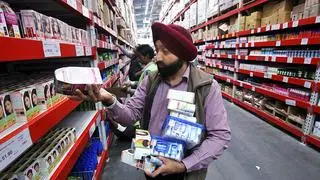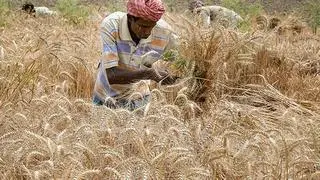Developed countries, including the US, the EU and Australia, have warned that India could “jeopardise” the entire Doha Round of global trade talks at the World Trade Organisation if it blocks the trade facilitation agreement scheduled to be adopted this month-end.
India, however, dismissed the warning delivered at a meeting of the agriculture negotiations committee on July 3 and insisted that the developed nations focus on agriculture issues.
“When we stopped them (developed members) from running away with a trade facilitation pact without delivering on food security, they are trying to blame the failure of the Doha Round on us.
This is infuriating and unacceptable,” a Commerce Ministry official told BusinessLine .
India caused a stir at the WTO last week when it said that it would not support the protocol for trade facilitation (TF) — an agreement that commits members to improve border infrastructure to smoothen movement of goods — till its concerns on food security are addressed.
Although the country had agreed to a TF pact at the Bali Ministerial meet in December last year, it was on the promise that the members would seriously start work on finding a permanent solution to its food subsidy problem.
In the absence of a permanent solution, India could be challenged for breaching subsidy limits when it fully implements its food security programme. Registering their unhappiness with India for linking the TF agreement to resolution of food subsidy problem, developed countries such as the US, the EU, Switzerland, Australia and New Zealand and some developing nations such as Mexico and Malaysia stated that the Doha Round is at risk because of the failure to agree on trade facilitation.
India objected to the interjection and said that the members should focus on agriculture as it was a meeting of the negotiations committee on agriculture and the issue of trade facilitation could be discussed in the trade negotiations committee meeting that takes on all issues.
Long deadlockThe Doha Round, which was launched in November 2001, came to a deadlock way back in 2008 when the rich and poorer nations could not agree on the formula to reduce import duties on industrial goods and cut farm subsidies.
In the Bali Ministerial, the WTO members carved out a smaller pact and agreed on a handful of deliverables.
While much progress has been made on the TF front, little has happened on India’s demand that procurement subsidies be excluded from subsidy caps, or on issues affecting least developed countries, which include a promise by the US to cut its cotton subsidies.







Comments
Comments have to be in English, and in full sentences. They cannot be abusive or personal. Please abide by our community guidelines for posting your comments.
We have migrated to a new commenting platform. If you are already a registered user of TheHindu Businessline and logged in, you may continue to engage with our articles. If you do not have an account please register and login to post comments. Users can access their older comments by logging into their accounts on Vuukle.